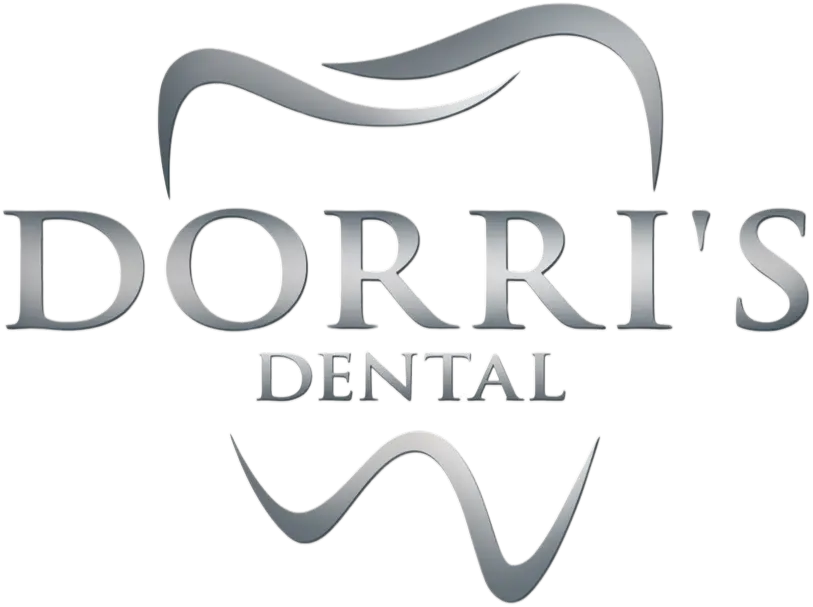Considering dental implants or bridges to restore your smile? One of the first things people ask us at Dorri’s Dental (located in beautiful Boynton Beach, FL 33436) is, “What materials are they made of?” It’s a great question! The material used can impact everything from the look and feel to the lifespan of your restoration. Let’s dive into the ultimate guide to dental implant and bridge materials so you can make an informed decision. Don’t forget to visit our implants & bridges page for more information!
The Ultimate Guide to Dental Implant and Bridge Materials
Choosing the right materials for your dental work is crucial for both the aesthetics and functionality of your smile.
Dental Implant Materials: What’s Underneath the Surface?
Dental implants are designed to be a long-lasting solution for missing teeth. The materials used are therefore incredibly important. The implant itself, the abutment (which connects the implant to the crown), and the crown each have different material options.
Implant Material: Titanium vs. Zirconia
- Titanium: This is the gold standard for dental implants.
- Biocompatible: Meaning it integrates well with bone through a process called osseointegration.
- Strong and Durable: Titanium implants can withstand significant chewing forces.
- Well-Documented: Titanium has a long history of successful use in dental implants.
- Zirconia: A ceramic material gaining popularity. We sometimes use this.
- Metal-Free: A good option for patients with metal sensitivities.
- Aesthetic: Zirconia is white, which can provide a more natural look, especially near the gumline.
- Biocompatible: Like titanium, zirconia is well-tolerated by the body.
Abutment Material: Connecting the Implant to the Crown
The abutment is a crucial connector. Here are some common materials:
- Titanium: Again, a strong and reliable option.
- Zirconia: For optimal aesthetics, especially with all-ceramic crowns.
- Gold Alloy: Sometimes used for its biocompatibility and ease of shaping (though less common now).
Crown Material: The Visible Part of the Implant
This is where aesthetics really come into play!
- Porcelain-Fused-to-Metal (PFM):
- Strength and Aesthetics: A metal base provides strength, while a porcelain overlay provides a natural look.
- Cost-Effective: Generally more affordable than all-ceramic options.
- All-Ceramic (e.g., Zirconia, E-max):
- Superior Aesthetics: These materials mimic the translucency of natural teeth, providing a highly realistic appearance.
- Biocompatible: Well-tolerated by the gums.
Dental Bridge Materials: Bridging the Gap
Dental bridges literally bridge the gap created by one or more missing teeth. They consist of a pontic (the artificial tooth) and crowns that are placed on the abutment teeth (the teeth on either side of the gap).
Pontic Material: The Artificial Tooth
- Porcelain-Fused-to-Metal (PFM): Offers a balance of strength and aesthetics, similar to implant crowns.
- All-Ceramic: Provides the most natural-looking result, especially important for front teeth.
Crown Material (for Abutment Teeth):
The crowns that anchor the bridge can be made from several materials:
- Porcelain-Fused-to-Metal (PFM): A common choice for its strength and durability.
- All-Ceramic: Offers excellent aesthetics, particularly if the bridge is visible when you smile.
- Gold Alloys: While less common for entire crowns, gold can be used for the underlying structure due to its strength and biocompatibility.
- Zirconia: Increasingly popular for its strength, aesthetics, and biocompatibility.
Factors Influencing Material Selection
Choosing the right material isn’t a one-size-fits-all situation. We consider several factors:
- Location of the Missing Tooth: Front teeth require more emphasis on aesthetics. Dental implants and bridges for front teeth needs very close consideration.
- Bite Forces: Back teeth endure greater chewing forces, requiring stronger materials. Make sure to give dental implants and bridges for back teeth a good look.
- Aesthetics: How important is it to you that the restoration blends seamlessly with your natural teeth?
- Budget: Different materials have different costs. We always work with our patients to explore financing options for dental implants and bridges.
- Allergies and Sensitivities: If you have known metal allergies, all-ceramic options might be preferred.
- Bone Density: For implants, sufficient bone density is crucial for successful osseointegration. If you are worried about bone loss, learn about can you get a dental implant if you have bone loss here.
Benefits of Each Material
The following materials are beneficial in the ways listed:
- Titanium: High strength and biocompatibility
- Zirconia: Metal-free and natural appearance
- Porcelain: Natural appearance
- Metal: High strength
Taking Care of Your Investment
Regardless of the material you choose, proper care is essential for the longevity of your dental implant or bridge. Remember to:
- Brush and floss diligently: Pay special attention to the areas around the restoration. See how to clean dental implants and bridges effectively.
- Schedule regular dental checkups: We can monitor the health of your restoration and address any issues early on.
- Avoid habits that can damage your teeth: Such as chewing on ice or using your teeth as tools.
Dental Implant and Bridge Materials: FAQs
Got more questions? Here are some common ones we hear at Dorri’s Dental:
- Are zirconia implants better than titanium?
- Not necessarily. Both are excellent materials. Zirconia is a good option if you prefer a metal-free solution or are concerned about aesthetics, but titanium has a longer track record. We would recommend you look at are dental implants better than bridges.
- How long do dental bridges last?
- With proper care, a dental bridge can last for many years, even a decade or more. Check out how long do dental implants and bridges last.
- Can I whiten my dental bridge or implant crown?
- No. Whitening treatments don’t work on these materials. It’s best to whiten your natural teeth *before* getting a restoration so the color can be matched. We can show you before and after photos.
- Are dental implants painful?
- The implant procedure itself is typically not painful, as it’s performed under local anesthesia. Some discomfort is normal during the recovery period, but it can be managed with medication. Check out are dental implants and bridges painful.
Ready to take the next step? Schedule a consultation at Dorri’s Dental in Boynton Beach, FL! We’ll assess your individual needs and help you choose the best materials for your dental implant or bridge, all while making you feel like family. Don’t forget to check out our home page!
Ultimately, understanding the ultimate guide to dental implant and bridge materials is key to making the best choice for your smile and oral health!
Book Your Next Appointment Below
Located on 12658 S Military Trl Suite 104, Boynton Beach, FL 33436, our detailed assessment ensures that all your dental needs are addressed.
Not Sure What You Need?





